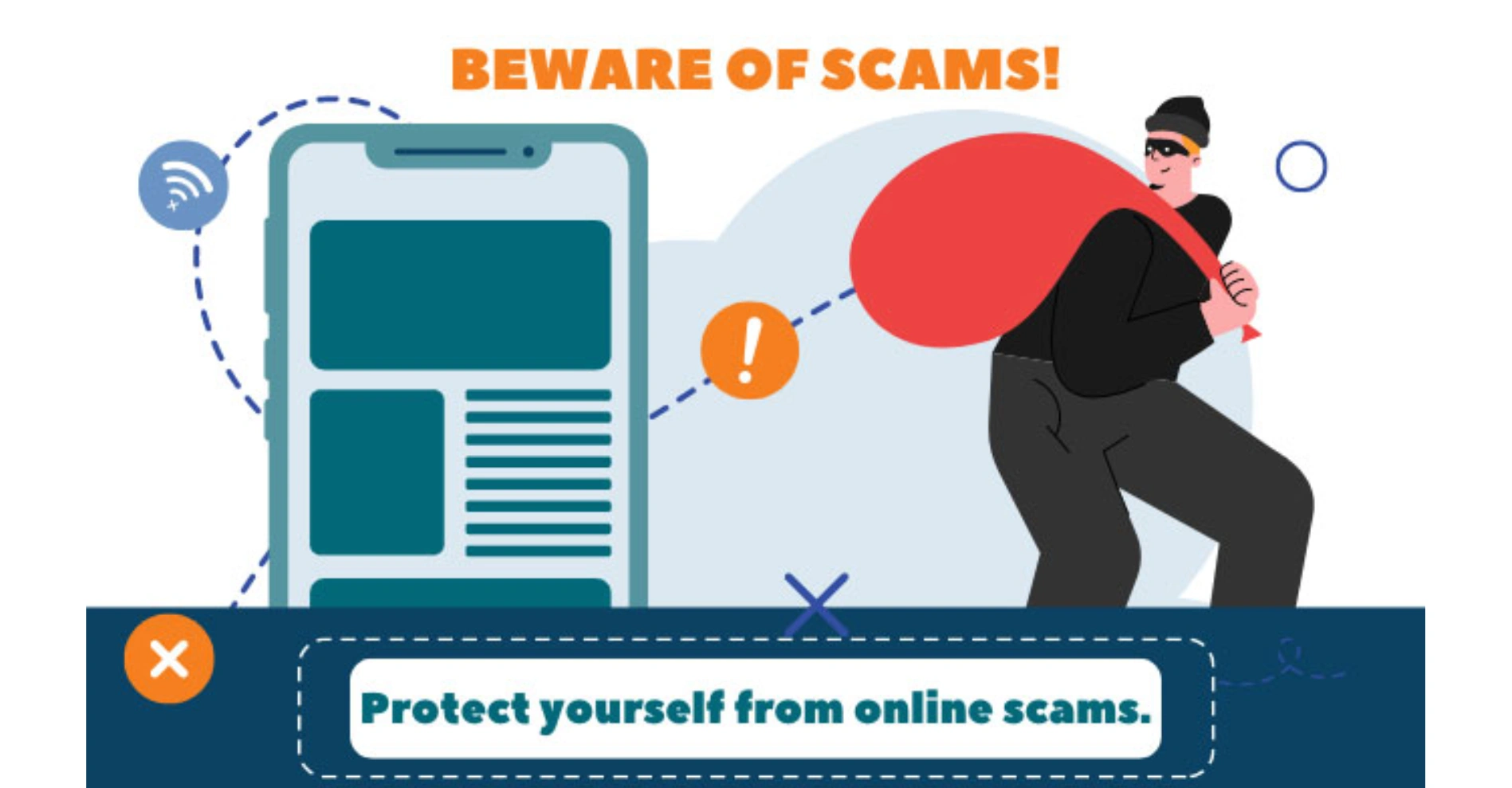In today’s age, scams and fraud are increasing daily, targeting individuals and businesses alike. Understanding the common types of scams, recognizing red flags, and knowing how to protect yourself are crucial steps in safeguarding your personal and financial information. Scammers are becoming more sophisticated, using technology and social engineering to trick their victims.
Common Types of Scams
Scammers use a variety of techniques to deceive and defraud individuals. The most common types of scams include:
Phishing Scams
Phishing scams involve fraudulent emails or messages designed to appear as if they come from reputable sources, such as banks, government agencies, or well-known companies. The goal is to trick recipients into providing personal information like passwords, credit card numbers, or Social Security numbers. These messages often contain urgent language and links to fake websites that look authentic.
Online Shopping Scams
Online shopping scams involve fake online stores that offer attractive deals on popular products but never deliver the goods. These scams often use social media ads or email promotions to attract victims. For example, a website might advertise high-end electronics at significantly reduced prices. After you make a purchase, you never receive the product, and the website becomes unresponsive.
Investment Scams
Investment scams promise high returns with little risk to attract victims to invest money. These scams can take various forms, including Ponzi schemes, pyramid schemes, and fraudulent investment opportunities. For example, a scammer might convince you to invest in a new cryptocurrency that promises huge returns. Initially, you may see some returns, but eventually, the scammer disappears with your entire investment.
Tech Support Scams
Tech support scams involve scammers pretending to be from reputable tech companies, claiming that your computer has a virus or other issues. They then charge for unnecessary repairs or gain access to your personal information. For instance, you might receive a pop-up message on your computer warning of a virus infection and providing a phone number for tech support. When you call, the scammer instructs you to grant access to your computer and then charges you for fake services.
Romance Scams
Romance scams involve scammers creating fake profiles on dating sites or social media to establish romantic relationships with victims. Once trust is gained, they ask for money for various fabricated reasons. For example, after weeks of online communication, your new romantic interest might claim to have an emergency and need money for medical bills or travel expenses. Once you send the money, they disappear or continue to request more.
How to Protect Yourself From Scams and Fraud
Protecting yourself from scams and fraud involves being alert, informed, and taking the right steps to safeguard your personal and financial information. Here are some practical tips to help you stay safe:
Secure Your Personal Information
Create complex passwords and change them regularly. Use a combination of letters, numbers, and special characters. Additionally, enable two-factor authentication (2FA) on your online accounts to add an extra layer of security. Be cautious about sharing personal information like Social Security numbers, credit card details, and bank account numbers. Only provide such information on secure, trusted websites.
Check Your Financial Accounts
Review your bank and credit card statements regularly for any unauthorized transactions. Enable alerts for your accounts to get notified of suspicious activities immediately. Monitoring your financial accounts can help you detect and address fraudulent activities early.
Be Wary of Unsolicited Communications
Be wary of unsolicited emails, messages, or phone calls, especially those asking for personal information or money. Verify the identity of the sender by contacting the organization directly using a known and trusted contact method. Do not click on links or download attachments from unknown sources, as they may contain malware.
Educate Yourself and Stay Informed
Stay informed about the latest scams and fraud tactics by following news updates and visiting reputable websites dedicated to consumer protection. Education is a powerful tool in recognizing and avoiding scams. Share this information with friends and family to help them stay protected as well.
Report Scams
If you believe you have been targeted by a scam, report it to the appropriate authorities. In the United States, you can contact the Federal Trade Commission (FTC) and the Internet Crime Complaint Center (IC3). Reporting scams helps authorities track and combat fraudulent activities, potentially preventing others from falling victim.
Avoid Trying to Reverse Scams
If you know that a scammer has scammed you, trying to reverse the scam by using their techniques is not advisable. Instead, report the scam to the appropriate authorities and take steps to protect your information and prevent further loss. Attempting to engage with scammers can lead to further complications and losses.
By staying vigilant and informed, you can protect yourself from the various types of scams and fraud that are prevalent today. Taking proactive steps to secure your personal and financial information is essential in the digital age.
Read: Schufafreie Kredite für Autos: So finden Sie die besten Angebote bei kfz-schufafrei.de

